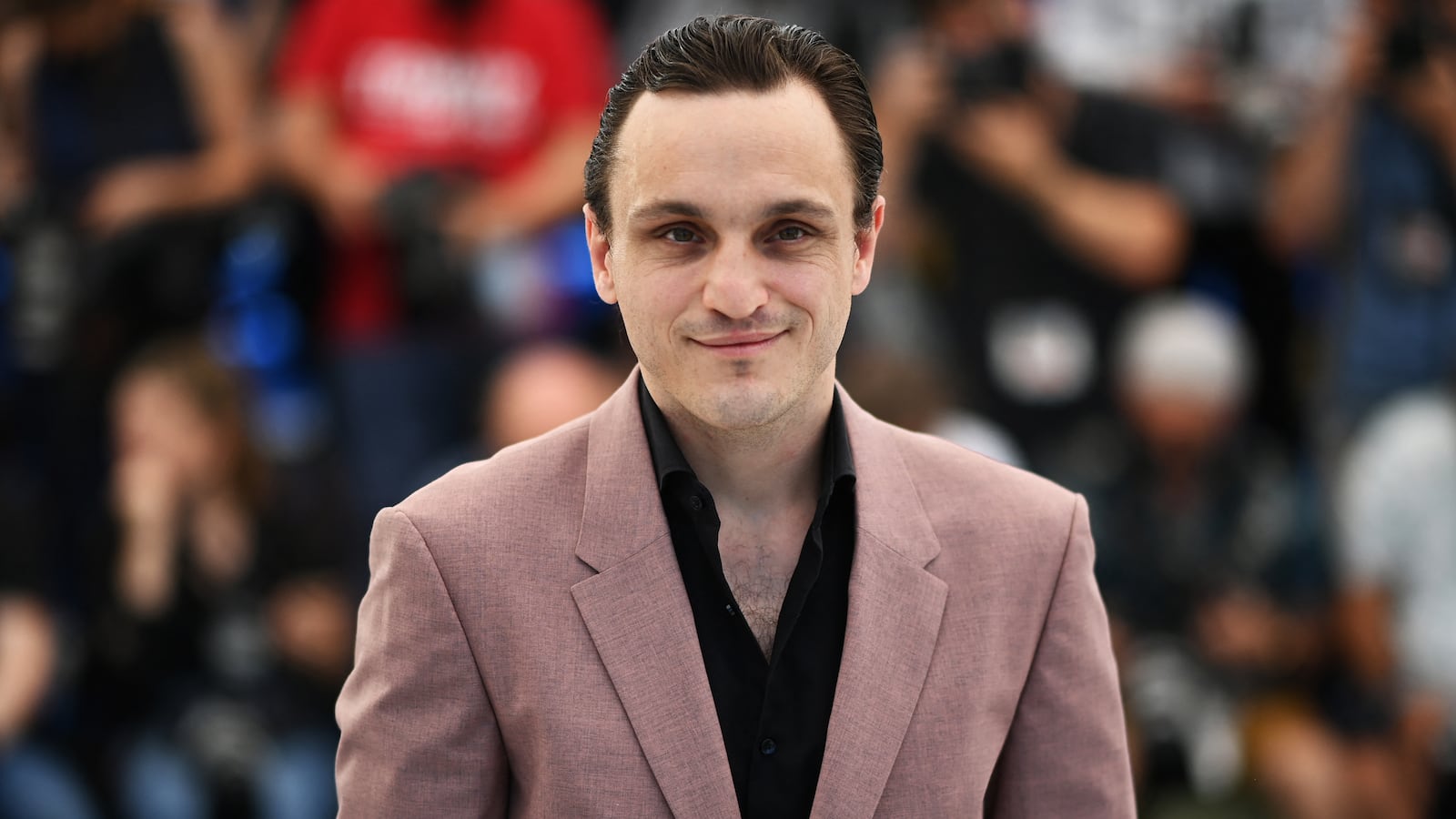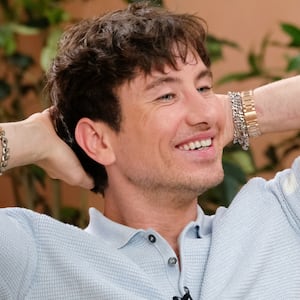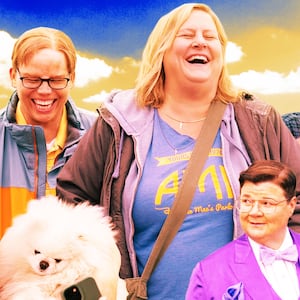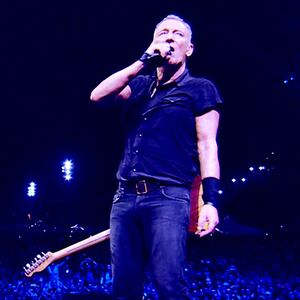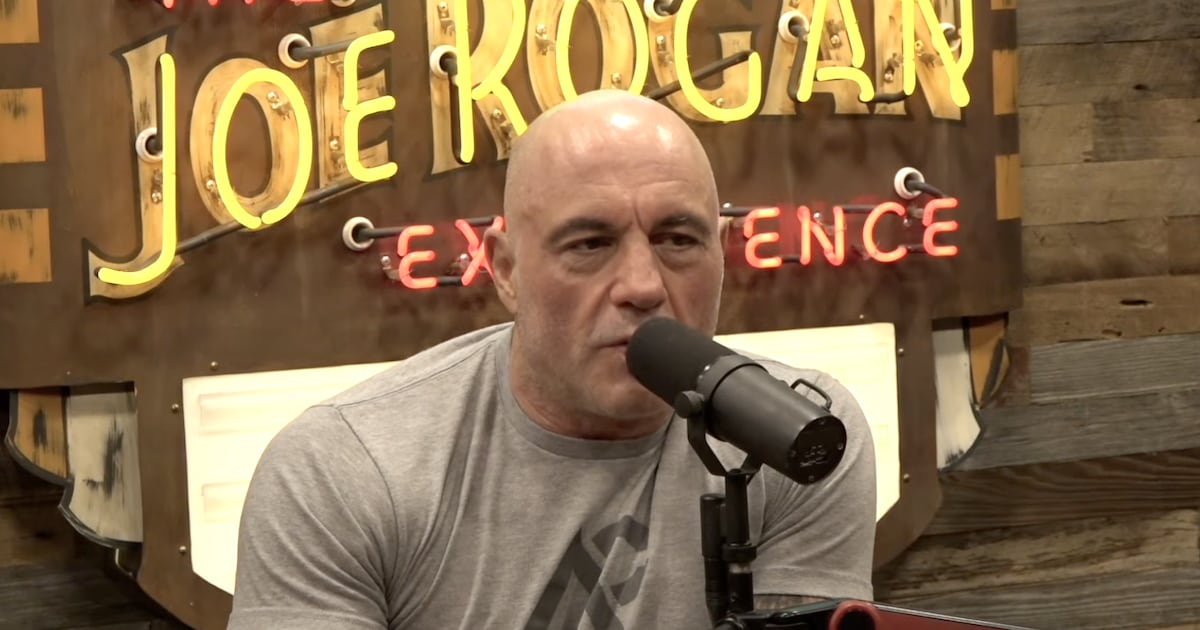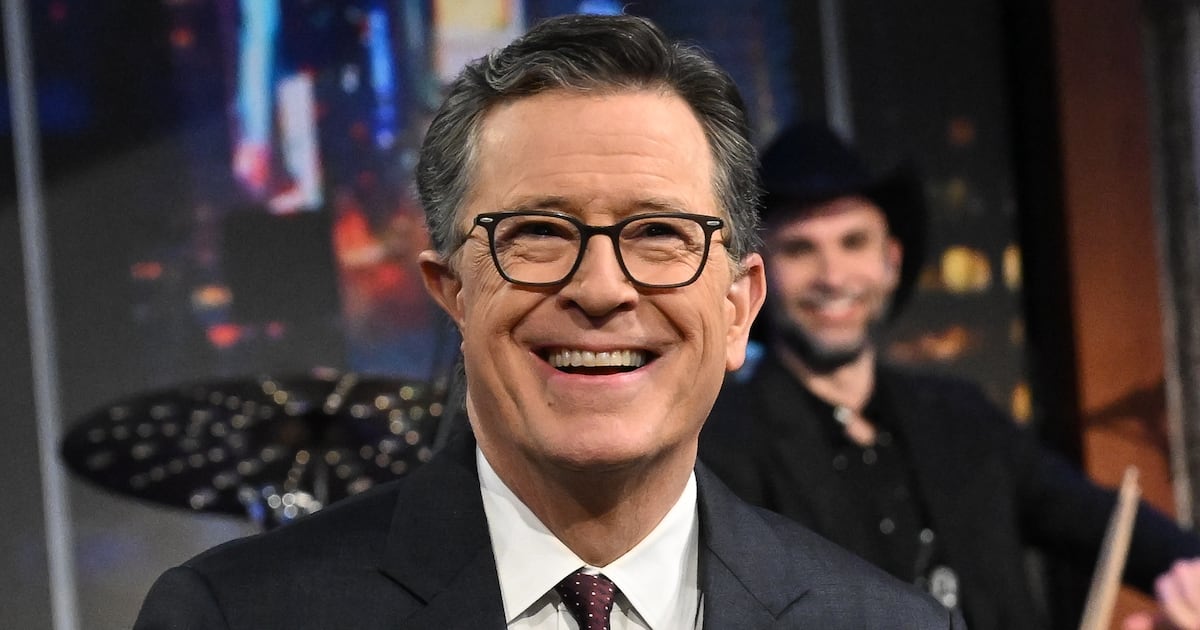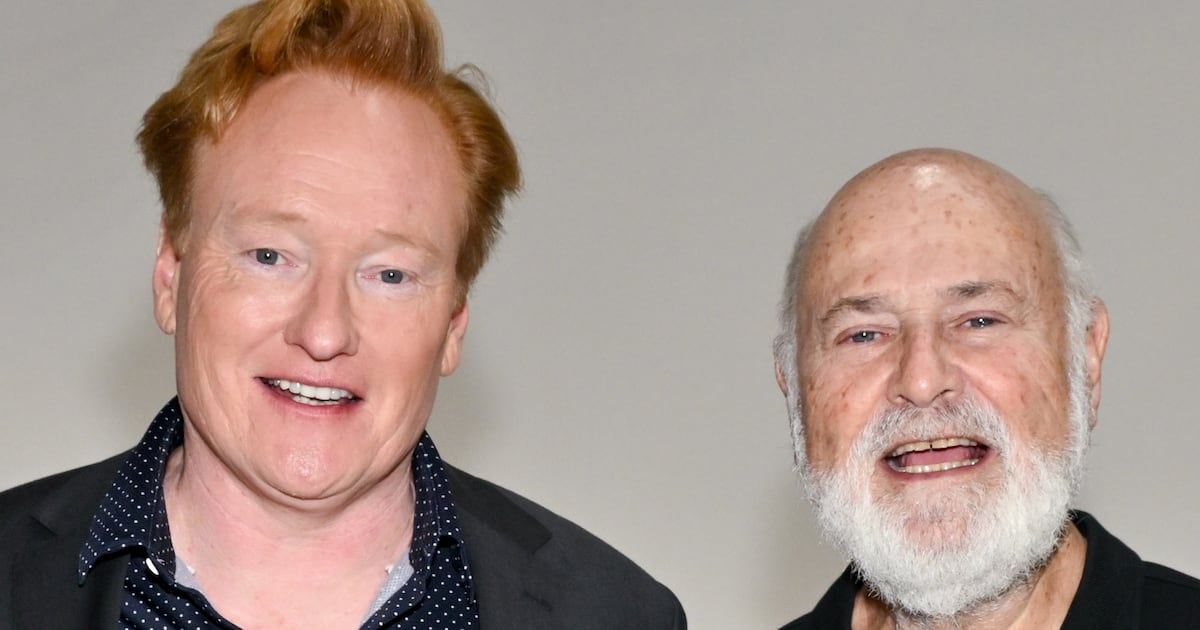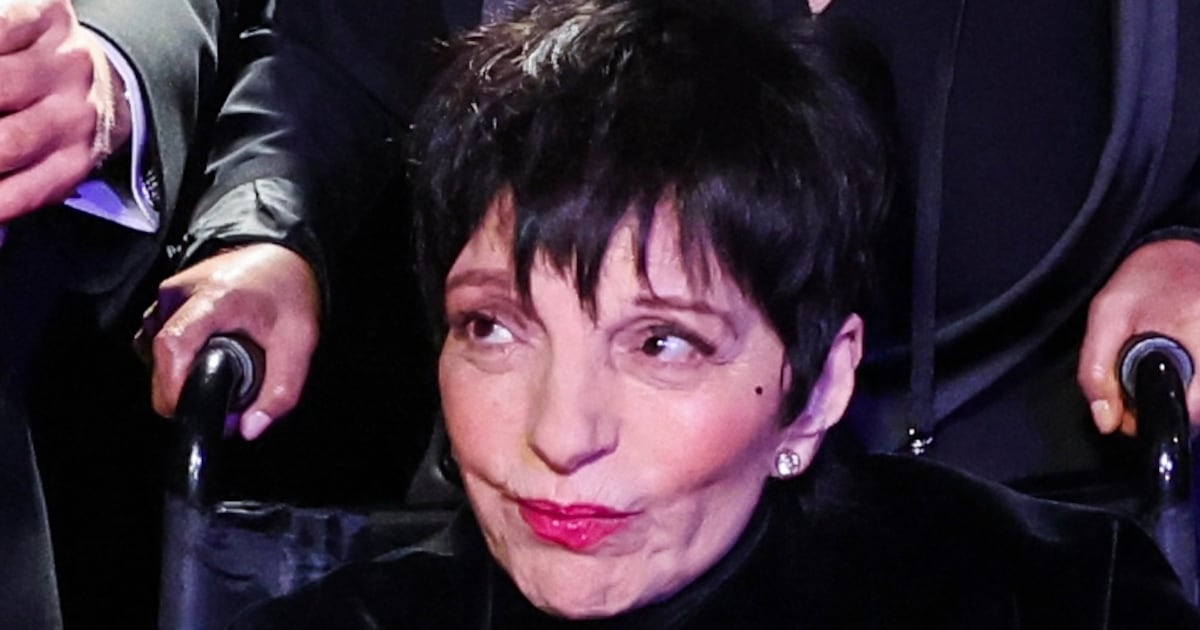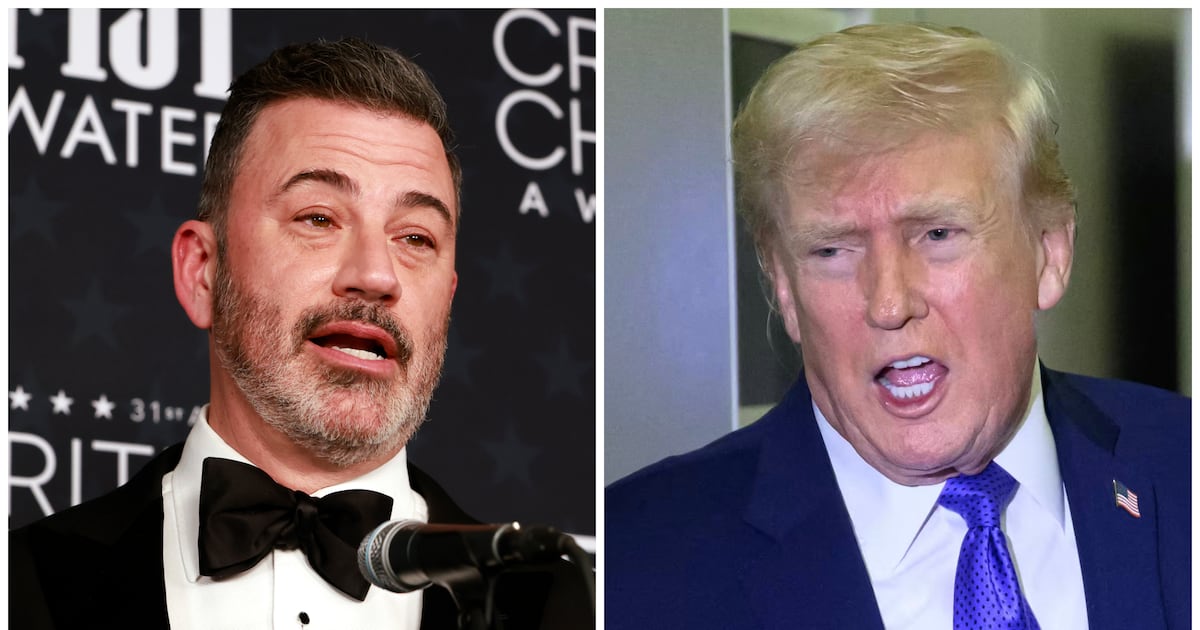Franz Rogowski isn’t an American household name…yet. Nonetheless, the 38-year-old German actor is international cinema’s most exciting leading man, and he’s primed to further make his mark on domestic shores with Bird.
The fifth feature from British writer/director Andrea Arnold, Bird—which premiered at this year’s Toronto International Film Festival—stars Rogowski as the title character, a mysterious man who suddenly appears in the life of Bailey (newcomer Nykiya Adams), a 12-year-old girl attempting to navigate her rollercoaster life in an English tenement building with her father Bug (Barry Keoghan) and half-brother Hunter (Jason Buda).
With a motley outfit and an innocent, quizzical smile upon his face, Bird is at once real and unreal, and he soon proves the charming heart of this magic-realist fable, guiding Bailey on her wayward coming-of-age journey, even as she assists him in finding his long-lost father.
For Rogowski, Bird is another opportunity to stretch his, ahem, wings, demonstrating not only his versatility but also his adventurousness. Having first attracted critical attention with 2018’s Transit, the actor is an electric screen presence, equally capable of radiating complex anguish (Great Freedom), romantic longing (Undine), and sexy shadiness (Passages).

For his latest, he embodies Bird with a careful balance of sorrow and cheer, dark and light, thereby making him an intriguing figure who’s both angelic and all-too-human. It’s a delicate tightrope act for Rogowski, and one that he pulls off with affecting aplomb, underscoring his gift for inhabiting ambiguous spaces. Beguiling no matter if he’s standing alone on a rooftop, twirling and prancing through an open field, or confronting a painful past, his Bird is one of the year’s most memorable characters, and another feather in the rising star’s cap.
For Rogowski, Bird not only reconfirms his arthouse-cinema bona fides, but puts him even closer to a mainstream U.S. breakout. Thus, it was our pleasure to speak with him about his unique partnership with Arnold, what he looks for in a project, and his forthcoming collaboration with another inimitable auteur, Terrence Malick.
I’ve read that Andrea Arnold didn’t have a traditional script for Bird, and only gave you your dialogue on the day of each scene’s shoot. How did that work, in terms of being ready to go when the cameras rolled?
First of all, it’s an invitation to an adventure, and you understand very quickly, okay, the process will be more about not knowing, and the unknown, and me surrendering to something that is based on the date and the light and the spirit of our crew. Less driven by my preparation process and all the fears and ego involved. So it was never about me having to give a good performance. It was rather an invitation to let go and surrender to a couple of images of a half-naked man floating above a lake, climbing trees, and laying in a meadow, and an album of songs that [Arnold] sent me the night before I hopped onto the ferry to the U.K., not knowing what this Bird I’m going to portray looked like.
How did you feel about that?
I felt, it’s fine! I don’t really need to do the usual preparation in this case, because preparation sometimes is a defense. It’s a defense against potential dangers, and when you know that the artist you are going to work with is one of your heroes, and she tells you to just not prepare, then why the hell should you prepare?
You obviously wanted to work with Arnold, but without a completed script, how did you become convinced you wanted to do Bird?
How can you be certain about a project when all you have are very personal stories? If the person sharing these stories is somebody driven and somebody that you’ve admired for a long time, and you can see the struggle that she’s having, which is an existential struggle of an artist creating something.
Being in the business for a bit now, I know that almost every project needs a very clear storyline, a very clear script where good and evil are portrayed in a very simple manner, and then you can get the money. Usually, the more money involved, the simpler the story. That’s why it’s such a gift to have someone that takes the risk to produce a movie that is based on dreams and fantasies and something very personal. Andrea’s cinema has always been driven by very personal stories, and I didn’t need to know much in this case.

That sounds like a fascinating experience.
It was really an invitation to be a part of a universe for a couple of weeks. I knew that this will not be me leading a movie, or me preparing a great method-acting performance. It would rather be me being her Bird, one of her voices, one of her selves. Accompanying her process, but also Bailey’s process, and Bailey also being a representation of Andrea’s childhood. It was intertwined in many ways, and it wasn’t about me being an actor that prepared a performance in order to win an award.
Were there certain things that helped you locate the character of Bird, be it your wardrobe or the type of set that Arnold cultivated?
I mean, let’s agree: He’s weird and we don’t know what this character is really all about. We don’t know where he’s from, we don’t know what he’s doing, what is his purpose. Like, what the heck?! But on set, you are on the hunt, whether you have prepared the text for a day, a week, a month. It’s the same thing. I think each step somehow created one layer of reality for the fictional character. I remember the first costume rehearsal—brown skirt and a beige-green wool pullover with sandals? Okay, this is terrible. And I’m going to approach this girl? What the hell is going on?
That was the first layer. And then you know this layer, and you feel like, okay, I’m actually scared of these clothes. I mean, Jesus, I’m 38, and I’m approaching a 12-year-old girl in this costume?
Given those circumstances, how did you make sure Bird wasn’t creepy?
You get a little haircut, and you have the second layer of reality. Then you meet on set and the first scene is Bailey walking the street and me observing her, and I want to get closer, but I don’t want to scare her, so I find ways to be close but at the same time be hidden. The fact that I was staring at these images for four weeks prior to the shooting—images of flying and climbing—made me climb a fence and a balcony and a rooftop so I would always be slightly elevated. Not very creative, a bird being elevated, but yeah, that was my process.
All of a sudden, I was this slightly elevated weirdo trying to approach a stranger. I knew that from a standpoint of “normality,” there were a lot of obstacles to overcome for me, being the stranger who’s not attached to the culture, not attached to the U.K. I’m not innocent, you know? I’m a German in a brown skirt with a cleft lip trying to approach this 12 year-old minor. I know that there’s something at risk. This is a risky situation here. But at the same time, I knew that the scene was about kindness.
These are the temperatures and the realizations that you are going through, and then bit by bit, you formulate a reality that turns into something concrete.

In light of this unique filmmaking experience, what was it like seeing the finished film?
For me, seeing the result is always a disappointment. That had nothing to do with Andrea or this film being better or worse than others. I always see the attempts, my approach, but I don’t really get where I want to be. I’m very thankful that the public’s eye is much more forgiving, and there’s much more gentleness and curiosity in people’s experiences watching the performances and the movie than when I see the result. Honestly, I’m terrible. I would re-edit, and I would re-act, and I would do the scenes again. It’s very hard to satisfy me.
Maybe I’m an actor for a good reason, because I’m not involved in the other things.
Perhaps it’s that you experience the film from the production side, and thus remember (and can see) all the choices you made, whereas audiences are ignorant of all that?
I think it’s a complex thing. And I also keep wondering, should I maybe take responsibility and formulate a couple of ideas, instead of being this picky arthouse actor and being on this pedestal with these films? Maybe it’s time to make a film myself. But on the other hand, I’m so AHD, I can’t even go from my bedroom to the kitchen to make a coffee because I get distracted on my way to the coffee machine. So for now, I’m very happy to get invited to these projects.
When choosing films, are you drawn more to the material at hand, or the director?
Usually, I care mostly about the director, and the films that the director has done prior. I also deeply care about the structure of the story. The way the story is told. But I don’t really believe in relevant topics. I actually don’t like this whole identity politics, and that every movie needs to be about minority groups being empowered. I really think that is a problem.
What I’m interested in is cinematography. I’m interested in the way somebody tells a story. But for me, the story could really be the most banal story. And on the other hand, a crazy story can also be very boring. I don’t really think there’s such a thing as unpolitical cinema. I think everything’s political, and I think a good film makes a political statement by creating spaces in which people can have secrets and dignity, and that creates a product that is not easy to digest but something that has its own rhythm and its own soul. If you create a product that is easy to digest, easy to sell, and then by including some political topic, you think you are relevant, I think that is cheating to a certain extent. It is very superficial.
But my motivations for making movies also differ. Sometimes, I make movies because I love the cinematography of someone. And sometimes, I make a movie because I love the paycheck.

Lastly, you’re going to be in Terrence Malick’s upcoming The Way of the Wind, which I’ve been eagerly waiting for…
Yeah, I’m also waiting for it. I have no idea what Terry’s up to. Honestly, he’s been editing for four years now. I have no idea if I’m in the movie—like, no idea. In A Hidden Life, I was on set for two and a half days. I know there was a version in which I was on-screen for 40 minutes, because we would improvise, and each day would be four hours of improvised material.
That’s incredible.
In this new film, I think I was there for an entire week, but it could very well happen that I’m not in the movie. I think when you work with Terry—I said the same thing about Andrea today, but it’s true—you are a color to a painting, and you shouldn’t expect too much. You should just go for it. I love the fact that Terry keeps making these weird movies that a lot of people hate and then a little group of people love, and he can do it because he’s independent. He doesn’t need anyone’s money, he doesn’t need anyone’s opinion, he just does his thing. That’s so rare these days. So whatever the film will look like, I can’t wait to see it.

